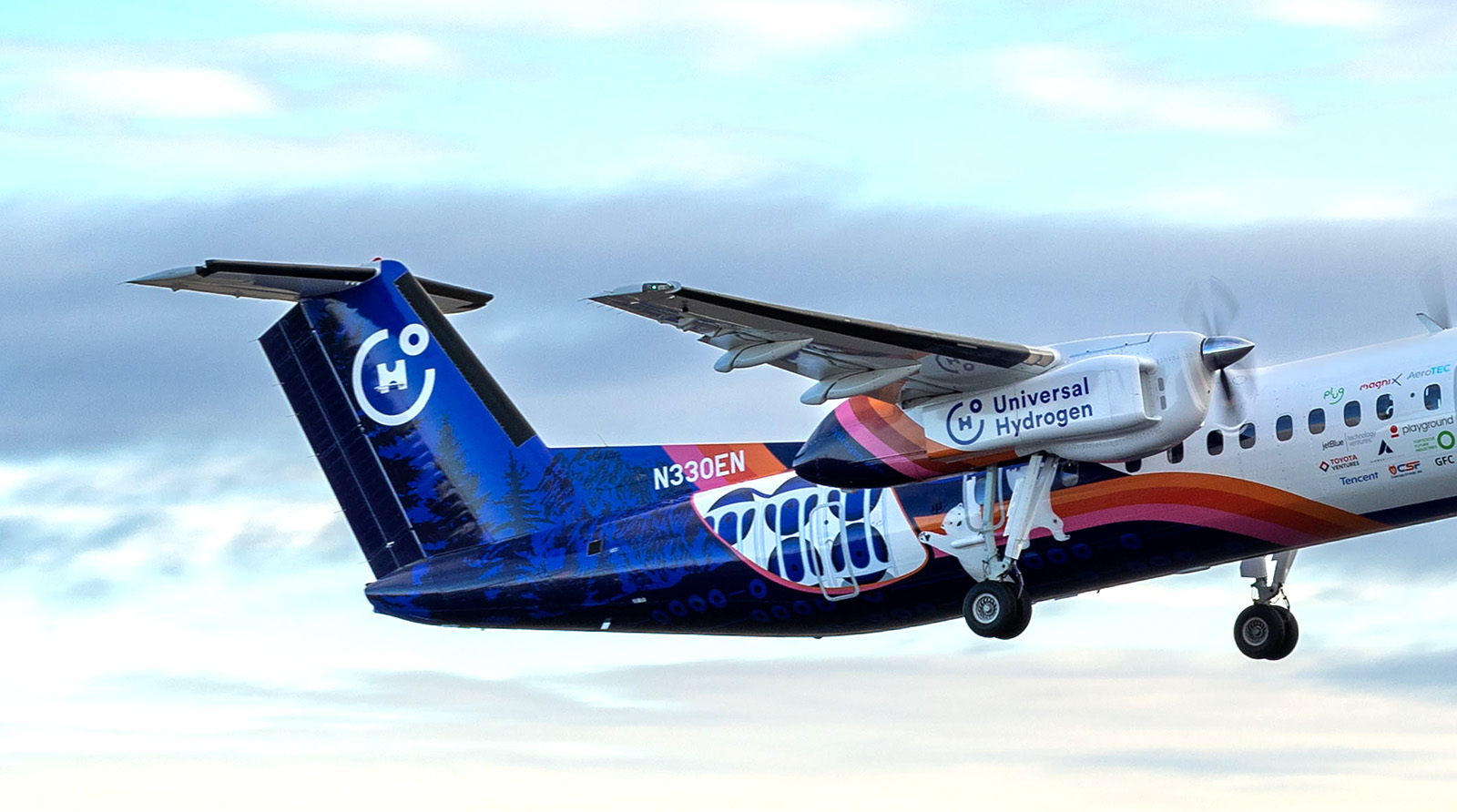Stay Up to Date
Submit your email address to receive the latest industry and Aerospace America news.
Proving the ability to safely dissipate heat lies near the top of the list of challenges ahead for Universal Hydrogen after its feat of propelling a regional aircraft with hydrogen fuel cells last month.
The flight by the California startup marked the state of a campaign toward its goal of having conversion kits ready by 2025 for airlines that want to turn ATR 72-600 and later De Havilland Dash 8 regional turboprops into planes propelled entirely by fuel cells and electric powertrains.
Fossil fuel engines have the advantage of shedding heat through their ample exhaust, whereas fuel cells supply electricity through a chemical reaction of oxygen from the air and gaseous hydrogen from onboard tanks. This reaction gives off much less exhaust, and in the form of water.
“You just have this heat from the fuel cell that’s not being shot backward from an aircraft,” explains Martha Neubauer, an aerospace industry analyst who works in Boston for Aerodynamic Advisory, a Michigan-based consulting firm.
The heat challenge does not come as news to Universal Hydrogen: “Cooling is critical for a short period of time after takeoff, but UH has various strategies available to manage this cooling demand,” says Mark Cousin, the company’s chief technology officer. “Much of the purpose of the current flight test campaign is to validate that the cooling system performance is adequate.” He adds that how the company sheds this heat is “core intellectual property” that it can’t reveal.
The campaign began on March 2, when Chief Test Pilot Alex Kroll took a modified Dash 8 airborne for a flight of 15 minutes over Grant County International Airport in Washington under a special airworthiness certificate from FAA. One of the plane’s two turboprop engines was swapped for a fuel-cell-powered electric powertrain, including an electric motor supplied by the electrification company magniX of Everett, Washington. A conventional engine was retained for safety, the company said.
“During the second circuit over the airport, we were comfortable with the performance of the hydrogen powertrain, so we were able to throttle back the fossil fuel turbine engine to demonstrate cruise principally on hydrogen power,” Kroll said in a press release.
Universal Hydrogen has not said when the next test flight will be in the two-year campaign.
About jon kelvey
Jon previously covered space for The Independent in the U.K. His work has appeared in Air and Space Smithsonian, Slate and the Washington Post. He is based in Maryland.
Related Posts
Stay Up to Date
Submit your email address to receive the latest industry and Aerospace America news.




